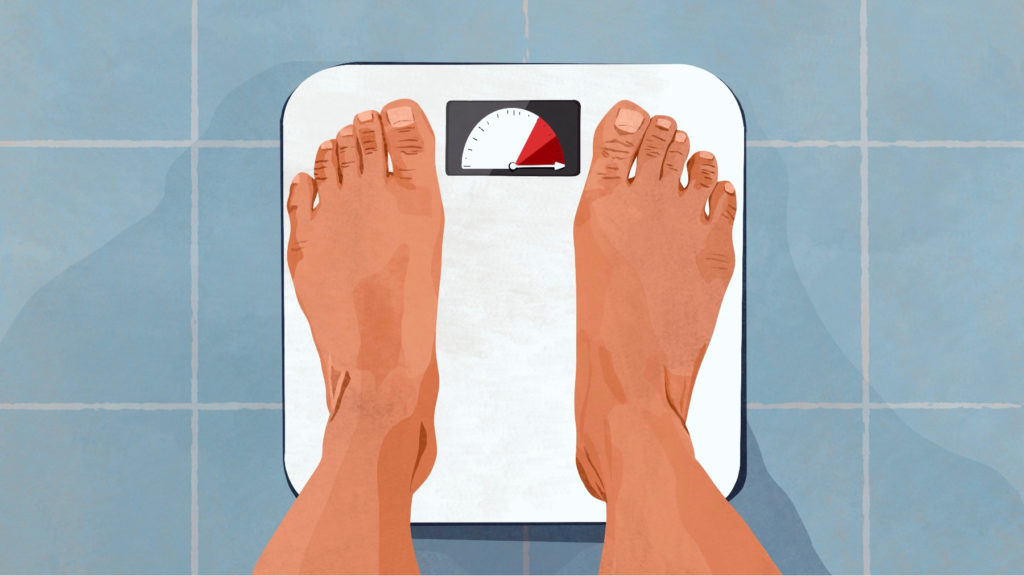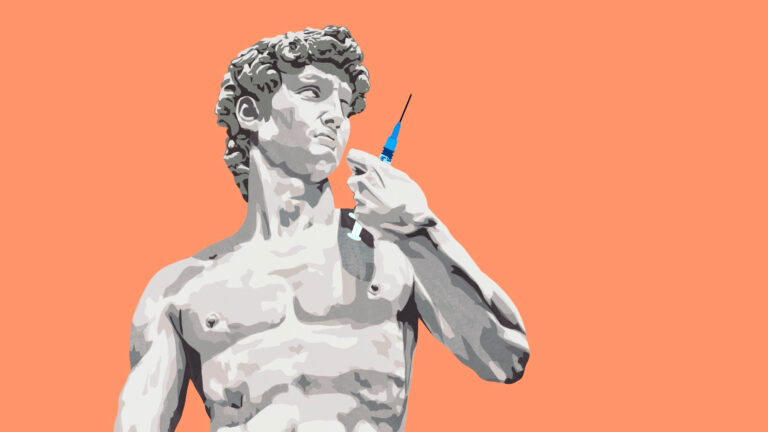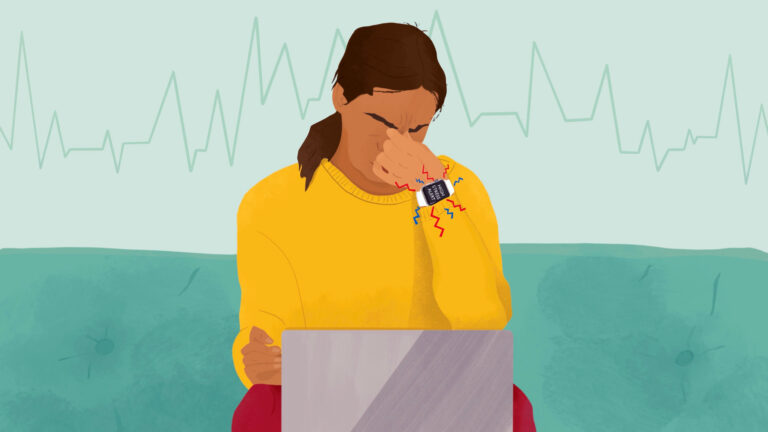For nearly half a decade, US obesity rates have been on the rise.
A complicated and sensitive subject, diet, genetics, lack of exercise, and social environment all play a role. But now, a growing number of digital health startups and biotech companies have emerged, promising to help prevent or treat weight gain.
From telehealth and personal coaching to prescription injections, are we closing in on an obesity cure? Let’s take a look.
Weight of the World
A leading cause of preventable deaths, second only to cigarette smoking, obesity in the US is a full-fledged public health crisis.
- In the US, 73% of adults and 35% of children are overweight or obese.
- By 2030, 50% of US adults will be obese, and nearly one in four will be severely obese.
- The impact of obesity on the US economy has eclipsed $1.72T, equivalent to 9.3% of the nation’s gross domestic product.
Hardly an isolated instance, in the 1990s, experts warned of a global obesity epidemic.
In the time since, the World Bank called the obesity crisis a “ticking time bomb,” while the World Health Organization said the twin epidemics of obesity and diabetes were a “slow-motion disaster.”
Making matters worse, the COVID-19 pandemic shined a spotlight on this escalating health emergency.
After old age, obesity is the second-leading risk factor for death among those who become infected and critically ill with coronavirus. Further, CDC data showed ~78% of people who were hospitalized, placed on a ventilator, or died from COVID were overweight or obese.
Beyond infections or deaths, COVID-related lockdowns exacerbated existing barriers to healthy eating and physical activity. As the Trust for America’s Health put it:
“Emerging data suggests eating habits shifted, physical activity declined, stress and anxiety increased, food insecurity worsened, and many Americans gained weight throughout the pandemic.”
Quantifying the impact, the American Psychological Association found that 42% of US adults experienced unwanted weight gain during the pandemic.
Searching for Solutions
According to a Harvard Public Health report, federal policies, nutrition and food industry influences, social norms, and personal responsibility play a role in curbing obesity.
Losing weight is hard, and keeping it off is often unsustainable. A better approach, preventing excess weight gain (especially among children), is key.
- Healthy lifestyle behaviors, including not smoking, limiting alcohol consumption, maintaining a nutritious diet, and exercising regularly, have been shown to reduce all-cause mortality by 66%.
- If all adults aged 18–64 walked 15 minutes more a day, they’d extend life expectancy and boost the world economy an estimated $100B annually.
But, stemming the global tide of obesity will require a multi-faceted approach.
Outlining a “framework for action” on obesity prevention, the World Health Organization lists dozens of steps, including imposing a “fat tax” on caloric snacks, prioritizing health education, regulating food industry advertising, and increasing access to sidewalks and bike paths.
Another factor, The Lancet Commission on Obesity said Big Food is partly to blame for our bulging waistlines. As we detailed in Issue No. 127, the commission compared the food industry to Big Tobacco, suggesting it knowingly profits from unhealthy foods and beverages.
Complicating matters, experts often disagree on how best to handle this crisis.
On one hand, obesity specialists like Columbia University researcher Dr. Rudolph L. Leibel have conducted studies showing that obesity is a disease. Leibel tells patients obesity is “a chronic ongoing medical problem, just like diabetes.”
The hope is that, by classifying obesity as a chronic disease, doctors, patients, and the public will recognize it as a medical condition. As a result, new drugs and treatment options will emerge.
On the other hand, Zachary J. Ward, a public health specialist at Harvard, told the NYT:
“People who choose to blame genetics are fooling no one but themselves. Our genetics haven’t changed in the last 30 years. Rather, what has changed is the environment in which our genes now function.”
According to Ward, the real culprit is an abundance of highly processed food. His solution? Prevention is “the way to go,” he said, adding: “Changes in the food environment are needed at every level — local, state and federal.”
Ending Obesity
As the obesity epidemic intensifies, so does the market for weight management solutions.
- The US weight loss industry is worth more than $72B.
- Globally, the weight management market is expected to top $270B by 2024.
- Digital therapeutics for diabetes and weight loss are projected to reach $19B by 2024.
Taking notice, digital health startups and drug makers are hoping to make an impact and profit.
Noom. Valued at more than $3.7B, Noom raised $540M in funding this spring. The company’s digital health coaching and diet app has been downloaded more than 50M times, earning more than $400M in revenue last year. Now, Noom is reportedly preparing to go public.
Virta Health. A digital platform for diabetes management, in April, Virta Health raised $133M in funding. Peer-reviewed research evaluating Virta’s program showed 52% of patients achieved prediabetes reversal during a two-year period.
Calibrate. Founded in 2020, Calibrate has already raised more than $127M, including a $100M round this year. Combining FDA-approved prescription medication with behavioral therapy, the company offers coaching and weight management services.
Found. Last week, Found, a weight management startup, launched publically. Backed by Atomic, GV (formerly Google Ventures), and Define Ventures, the company offers a “personalized, medically guided” weight management program.
Fella. A telehealth clinic helping men achieve a healthier weight, Fella connects members to FDA-approved medication and lifestyle coaching. The company is backed by Y Combinator, BrandProject, and Global Founders Capital. Note: Fitt Insider is also an investor.
Ro. Last year, telehealth provider Ro began offering Plenity, an FDA-approved weight management prescription. Notably, Gelesis, the drug’s developer, is planning a $1.3B SPAC listing to scale Plenity’s commercialization.
The list goes on… Last month, digital diet app Oviva added $80M in funding. This summer, Form Health landed $12M for its remote weight loss program. And in March, telenutrition company Foodsmart secured $25M.
Next up. Driving innovation in the space, telehealth and prescription medicines are transforming weight management. Within biotech, companies like Novo Nordisk, Eli Lilly, and Versanis Bio are going all in.
This summer, Novo’s weight loss drug Wegovy received FDA approval. Eli Lilly has a similar drug called tirzepatide. And Versanis recently raised $70M to advance development of bimagrumab for obesity treatment.
An uphill battle, obesity drugs still face skepticism from patients, doctors, and health insurers voicing efficacy and safety concerns.
Punchline: From prevention to treatment and everything in between, countering the obesity epidemic should be a national priority. As Tom Vilsack, the US Secretary of Agriculture, put it:
“We cannot have the level of obesity. We cannot have the level of diabetes we have. We cannot have the level of chronic disease … It will literally cripple our country.”
🏀 Opportunities in Sports Tech
A few weeks back, in Issue No. 149, we detailed the rise of sports tech startups — a category set to reach $50B over the next few years.
On the Fitt Insider Podcast: Jordan Fliegel, managing director of Techstars Sports Accelerator, joined us to chat about emerging opportunities and exciting trends in the sports and fitness space.
We also cover: Jordan’s experience as founder of CoachUp and co-CEO of Draft.com, his investment fund Founders First, and framework for evaluating companies and founders.
Listen to today’s episode here.
👀 Peloton of Pilates
Smart bikes kicked off the connected fitness boom; now, Pilates wants in on the action.
Old school. Developed by physical trainer Joseph Pilates in the 1920s, the Pilates method spawned an entire industry, including certifications, equipment known as reformers, boutique studios, and more.
The boutique boom. The launchpad for Xponential Fitness, Club Pilates has more than 600 studios in North America, and the company has sold 900+ licenses globally. With more than 70 studios, earlier this year, [solidcore] secured an investment from VMG Partners to fuel expansion. And North Castle-backed SLT counts 20+ studios.
Connected Pilates. Following the Peloton of ‘X’ blueprint, high-tech rowing, strength training, and boxing upstarts have found success. Hoping to cash in, newcomers are betting on connected Pilates reformers.
- Frame Fitness, a connected reformer, landed $5M in a round led by 24 Hour Fitness founder Mark Mastrov.
- Flexia, a reformer/content combo, was selected to participate in Techstars Sports’ most recent accelerator.
- ReformRX, a UK-based smart equipment maker, is set to debut its connected Pilates machine.
Looking ahead: It’s too soon to tell if connected reformers will be a hit with exercisers, but investors and founders are still bullish on home workouts. This begs the question: What piece of fitness equipment will get the Peloton treatment next?
🎮 The “Sport” in esports
Push back the sofa — virtual athletic competitions are on the rise:
- NEX just raised $25M and launched Active Arcade, a collection of motion-sensing mobile games.
- Playpulse, a bike-game console hybrid with multiplayer potential, recently secured $2M.
- In April, game-based connected rowing machine Ergatta raised a $35M Series A.
And after a surge of interest during the COVID-19 pandemic, Zwift is debuting its own esports league and gearing up to become an Olympic sport.
Speaking of the Olympics, the 2021 Olympic Virtual Series, an official digital experience put on by the IOC, featured video game competitions in auto racing, baseball, cycling, rowing, and sailing. Finding validation, esports will make its official debut at the 2022 Asian Games.
eSPN? On the sponsorship level, Hyperice, Freeletics, and supplement companies are targeting gamers. Last year, Twitch, a media platform popular for livestreaming gaming, landed a broadcasting deal with the National Women’s Soccer League (NWSL). And across the esports world, gaming leagues are starting to resemble their more athletic forebears.
Dovetailing disciplines. As esports and traditional sports continue to converge, many wonder whether virtual sports will one day overtake the in-person variety.
- The esports market is projected to reach $2.5B in 2022.
- Total disclosed esports investment topped $3B in just the first four months of 2021.
- Experts project esports to grow 200% to 796M global viewers by 2024; in comparison, basketball currently draws 825M viewers.
In its favor, esports is practically tailored to the digital age. With cross-border opportunities and all-access streaming, the possibilities seem endless. Currently, top streamers already make millions per year ― it may only be a matter of time before we all get paid to compete.
If and when they get there, organizers will need to develop ways to prevent a parallel trend: digital doping, the act of manipulating digital race/competition data.
Next up, throw some VR into the mix and things could get even more interesting. As virtual reality pushes into the mainstream while building more robust and realistic worlds, keep an eye out for upstarts like FitXR.
Takeaway: Multiplayer competitive fitness is likely here to stay. It’s early on, but as players like Riot Games and Twitch lay out the competitive gaming groundwork and physical esports leagues launch sponsorship deals, things are taking off fast.
📰 News & Notes
- Barry’s debuts The Academy, its new loyalty program.
- Amazon unveils Halo Fitness and new health wearable.
- Wahoo Fitness launched SYSTM, a cycling training platform.
- Technogym partners with Christian Dior on fitness equipment line.
- Start or accelerate your health and fitness career: 1,000+ job openings in the industry.
- iFIT teams with major marathons, including NYC, CHI, BOS, LDN, for interactive content.
💰 Money Moves
- Found, a telehealth platform for weight care management, raised $24M in Series A round co-led by GV and Atomic, with participation from Define Ventures.
- Animal-free dairy company Perfect Day secured $350M in Series D funding at a $3.5B valuation.
- Frame, makers of a connected Pilates reformer, closed $5M in an oversubscribed seed round.
- Ongo, a platform for health and wellness creators, raised $3.5M in seed funding.
More from Fitt Insider: Rise of the Fitness Creator - Venture firm AlleyCorp launched a $100M healthcare fund that will deploy early-stage capital to NYC-based digital health startups.
- Longevity Science Foundation, a consortium founded by biotech founders and longevity researchers, launched with $1B to deploy into institutions seeking to extend the human lifespan.
More from Fitt Insider: The Quest to Live Forever - In-home elder care startup Honor Technology raised $70M in Series E funding as well as $300M in debt financing, valuing the company at $1.25B.
More from Fitt Insider: The Senior Care Crisis - NOVOS, a supplements company focused on human longevity, closed $3.15M in seed funding led by Resolute Ventures.
- UK-based weight and diabetes management startup Habitual secured $2.3M in a seed round led by Atlantic Food Labs.
- Toothfairy, a UK-based virtual dentistry platform, landed £3M ($4.08M) in a seed round led by ADA Ventures and Slingshot.
More from Fitt Insider: Disrupting Dentistry
Today’s newsletter was brought to you by Anthony and Joe Vennare, Melody Song, Wesley Yen, and Ryan Deer.






